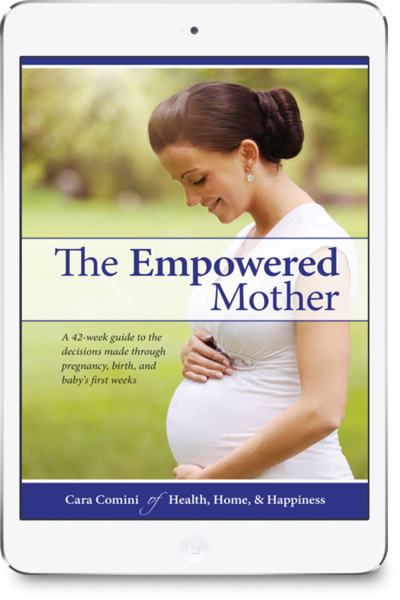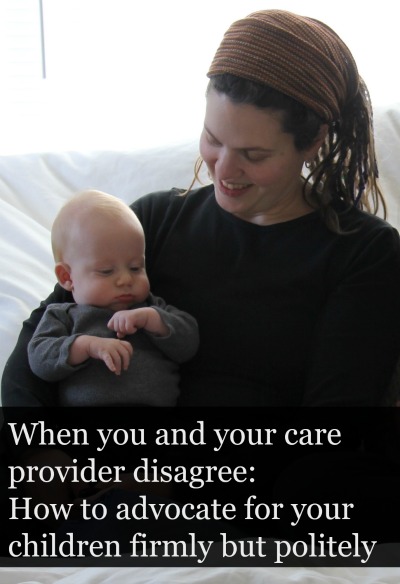
“Oh, yeah, I refused that. And I’d let them weigh them, but with their clothes on, it’s cold in Montana.” I was talking with a friend about WIC appointments that we went to when my older kids were toddlers. WIC is food assistance for families with young children that are in a lower income bracket, in addition to providing specific food and formula (the kinds vary by state), they also screen for nutrition-related problems in young children by taking blood to test iron levels and weighing them to check for growth.
“I need to hang out with you more. I’m such a rule follower, but we were going to her next well baby visit in 3 days, I didn’t see why the WIC office needed to poke her and check her iron levels too.”
Why rules are there
There are parents who aren’t as educated or logical about healthcare choices as you are, which is not bad or wrong, but the rules put in place to protect their children may not apply to yours.
The WIC rule of checking hematocrit at every visit, even if the child is scheduled for a well baby visit in a few days protects the child who’s well baby visit gets missed on accident, her parents didn’t know that her tiredness and paleness could be due to low iron, and she misses needed iron supplementation to support her development.
The antibiotic eye ointment protects the newborn whose mom unknowingly contacted an STD while she was pregnant; the preventative eye ointment protects this child from going blind.
The pediatrician’s nurse insisting on checking baby’s weight while they wear nothing, not even a diaper (even though it’s cold and baby doesn’t like to be naked!) helps keep accurate weights and prevents alarm from inconsistencies with weighing. Inconsistencies could look like the child is failing to thrive when he’s really not, or they could look like the child is gaining well when he, in fact, is not.
When you can make an exception
There are lots of times when our children don’t fall into the target group that certain rules are designed to protect.
We may be very sure that we did not contract an STD during pregnancy, and therefore we can choose to decline erythromycin eye ointment in our newborn (see The Empowered Mother chapter 23 to help you think through this decision).
We can be aware of the signs of anemia in our infant or toddler and request a blood test if we’re concerned. We can make sure we follow up with any well baby care that is needed. And we can provide a diet filled with iron-rich foods as well as the B and C vitamins needed to absorb iron to lessen our children’s likelihood of having anemia. (see The Empowered Mother chapter 20 for anemia and iron decisions made during pregnancy)
We can know that our 12-month-old who is growing out of his 24-month clothing and eats whole healthy foods every day does not need as accurate of a weight check as a baby who is in a low percentile and may not be eating well or has other health issues. In this case, we may want to avoid stripping our obviously thriving toddler down to a diaper in the cold WIC office for a super accurate weight check.

Free e-course, limited time only!
No, your practitioner won’t be mad
You’re not being a rebel without a cause.
Your doctor and you both have the same goal: To have a healthy child.
Occasionally you may run into a care provider who is having a bad day and is not interested in accommodating parental choice, but for the most part politely asking for their supervisor resolves the issue easily.
When you are able to articulate that you understand the reasoning for certain rules, and then explain why you do not think this particular practice is necessary for the health of your child, your practitioner won’t lump you in with the mothers who don’t care about the health of their child, but rather they will just see you as your child’s advocate.
In addition, as an empowered mother who makes informed decisions and takes the health of not only her children but other children seriously, your practitioner will appreciate that you’re coming to her with educated questions that are relevant to your child’s health.
These questions may be something like this:
- We have a well baby visit tomorrow, but my child has a cold with a rash – do you want me to reschedule so that we don’t get the other well babies sick? (well baby visits are often all scheduled at the same time so that there isn’t a mix of sick and well children in the waiting room)
- I’ve measured his birth mark, and it’s staying consistent, is there anything that I need to be concerned about with it?
- We were exposed to pertussis, and now one of my children has a cold – I’m going to keep them home from school until we confirmed that they don’t have pertussis. Could you call in a lab test for me?
How to politely decline
While I briefly worked as a receptionist in an accountant’s office I was shocked to hear the accountant asking IRS during the audit of a client, “Okay, so how much of this do you really need?”
The answer was about 25% of what they had asked for at first – a few key documents that supported the tax returns in question.
Yes, that’s right. Many authorities have form letters that they send out asking for everything they could ever need and more. Just stopping to question what was really needed saved the CPA office hours and hours of photocopying, and it can start a conversation that shows that yes you are willing to work with whoever is asking the questions, but no, you don’t think that everything they’re asking is essential.
Carrying the question of “How much do you really need?” into other areas of my life has paved the way to having less unneeded interventions for my children, while still maintaining a good relationship with our care providers.
To politely decline different policies, whether it’s the glucose tolerance test in pregnancy, anemia screening in your thriving toddler, or routine antibiotics before a dental procedure, follow these three steps.
1. Show understanding of why they are requesting what they are requesting.
- “I understand that accurate weight checks are important”
- “I understand that the tooth is infected, and it will release bacteria into my bloodstream”
- “I understand that glucose screenings are done because gestational diabetes can cause complications with the baby and mom.”
2. Neutrally state your concerns about the standard testing.
- “He doesn’t like to have his clothes taken off – it’s a little cool in here, and he’s never had trouble with weight gain.”
- “I’m breastfeeding and the baby doesn’t take a bottle. He hasn’t been exposed to antibiotics ever and I’d like him to avoid them unless it’s a significant issue.”
- “I have a hard time fasting as would be needed for the GTT, in addition I’m already feeling sick from morning sickness and I think that the GTT drink would make it even worse.”
3. Offer a compromise.
- “Let’s just do the weight check with his clothes on, we can just note it in the chart that his clothes were on. If you want to ask your supervisor, I don’t mind waiting.”
- “I”ll fill the prescription, and I’ll take it if I’m showing signs of infection like a fever.”
- “I’d be happy to do random blood glucose checks, but I don’t want to fast since I get light headed if I don’t eat when I get up. I don’t believe that I’m at risk for gestational diabetes due to not having excessive thirst or urination, not showing extreme weight gain in pregnancy, and having no other GD risk factors, so I would also be comfortable skipping the GD screening unless I present with other risk factors.”
Keeping a respectful and helpful attitude while still advocating for your children
Coming into appointments expecting confrontation, or being overly nervous will set off all sorts of alarms in your care provider’s eyes. It can be hard to go against the flow when making medical decisions for your children, but with some practice of being calm and polite, and still arriving at a solution that works for you and keeps your child healthy without unneeded intervention.
We also want to be sure we’re choosing our battles. If something is minimally invasive, we may just opt to go with the flow. Whenever it’s possible I try to place the ball in the care provider’s court by allowing whatever they feel strongly about but I’m fairly neutral about (like weight checks, urinalysis in pregnancy, referring to specialists when I’m not sure there is a need), and since we have a good relationship, this has served me well.
Do you want to learn more about questioning routine care in pregnancy and baby’s early life?

I’m just now putting the final edits into The Empowered Mother, but you can still get it at the great presale discount! Look for your final version later this week. Click here to learn more.

Original article and pictures take healthhomeandhappiness.com site



























